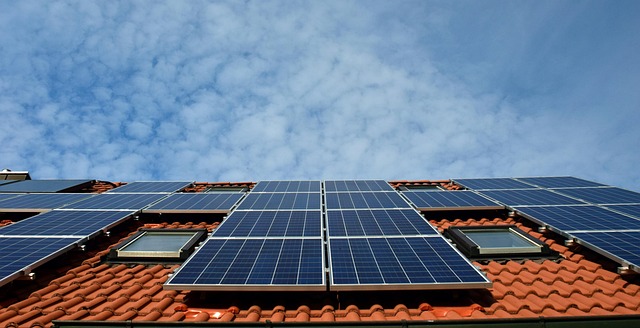Investing in commercial solar panels can transform business energy expenses into lasting savings. With installation costs balanced by attractive returns, many UK businesses see payback within five years. Beyond cutting bills, solar power enhances energy independence and boosts brand reputation in a green-conscious market—key advantages worth considering for sustainable growth and competitive edge.
Essential facts about commercial solar panel systems for businesses
When exploring Commercial Solar Panel Installation for businesses, understanding system types, components, and sizing is key. Commercial systems in the UK range from 2 kW for small firms to over 5,000 kW for large operations. Typical arrays feature high-efficiency monocrystalline panels, robust inverters, mounting platforms, battery storage, and essential safety and management devices. Most installations are rooftop, though ground-mounted systems are used for sites with surplus land.
Also to discover : What Are the Best Strategies for Enhancing Employee Productivity in a Leeds FinTech Company?
For immediate financial context, average setup costs for small to medium UK businesses fall between £16,000 and £60,000 for 2–5 kW systems, with larger arrays reaching up to £3 million. Maintenance averages just £100–£200 annually, and businesses reap substantial energy bill savings often £4,595–£11,895 each year depending on size and usage. Insurance for the system generally adds a modest premium.
Return on investment typically emerges within four to five years; medium-sized systems often yield an ROI of 16%–45%. Panels carry 25+ year lifespans, providing reliable long-term performance. Adopting commercial solar also benefits the environment by offsetting 5 grams of CO₂ per kWh produced, while strengthening a company’s reputation as a forward-thinking, sustainable brand.
Also to discover : Unlock significant savings for your business using commercial solar systems
Comparing Commercial Solar Panel Technologies, Efficiency, and Performance
Overview of Leading Commercial Solar Panel Technologies and Manufacturers
Modern commercial solar panels rely on photovoltaic (PV) technologies to convert sunlight into electricity. The two main types are monocrystalline and polycrystalline panels. Monocrystalline panels, favored by many UK businesses, are distinguished by higher efficiency and a sleeker appearance. Polycrystalline panels, though typically less efficient, provide a cost-effective alternative for businesses prioritizing budget over maximum output. Thin-film panels exist as well, but are less commonly used due to lower efficiency ratings in commercial settings.
Key manufacturers supplying the UK market include Canadian Solar, renowned for delivering robust commercial PV systems. Their panels, often rated around 435W, are designed for large-scale energy output and long-term reliability, routinely supported by warranties extending beyond 25 years.
Performance, Wattage, and Efficiency Comparisons Between Brands and Models
Commercial solar panels for businesses are rated by wattage (W) and efficiency (%). Premium brands offer modules achieving efficiencies above 20%, maximizing generation even with modest roof space. Lower-cost panels may present rates closer to 16-18%, reflecting trade-offs in output and space requirements.
Panels with higher efficiency are especially valuable when roof or ground area is limited. Canadian Solar’s high-yield modules are repeatedly selected for projects where both performance and longevity are paramount.
Assessing Real-World Benefits and Improvements in Business Energy Efficiency
Switching to efficient commercial PV systems results in annual electricity bill savings, measurable reductions in CO2 emissions, and progress towards sustainability targets. Integrated battery storage often boosts self-consumption, increasing overall energy independence and minimizing exposure to grid price volatility.
Modern commercial installations enable businesses to secure power for the next 25 years or more, stabilizing operational costs and enhancing brand reputation through visible environmental responsibility.
Cost breakdown, funding strategies, and ROI analysis for commercial solar
Detailed breakdown of installation, operation, maintenance, and insurance costs
Precision: Installation costs combine solar panels, inverters, mounting frames, batteries, energy management units, and often bird-proofing. The panel and inverter components account for the largest share. For small to medium UK businesses in 2025, installation budgets typically span from £16,000 to £60,000 for 2 kW to 5 kW solutions. Ongoing maintenance involves minor cleaning and system checks, averaging £100–£200 annually, with most tasks being straightforward and sometimes handled in-house to cut costs. For insurance, expect an additional £10–£20 per month or a one-off payment (around £400–£1,600), based on coverage and system size.
Available financing methods, VAT reductions, and incentives in the UK for business solar
While explicit government grants ended after the Feed-In Tariff closure, a 0% VAT rate significantly lowers system purchase costs for business customers. Companies can use asset or green financing and lease or operating lease agreements to manage upfront expenses efficiently. Some energy suppliers and banks might offer green loans tailored to renewable investments.
Practical ROI examples, payback periods, and savings by industry or business size
Commercial solar payback generally falls within four to five years, driven by electricity bill savings of £4,595–£11,895 annually. Higher consumption and larger arrays mean faster return on investment, with ROI rates between 16% and 45%, aided by economies of scale in manufacturing, agriculture, or retail sectors. Lifespans of 25+ years further boost overall business savings.
Commercial solar installation process, permissions, and ongoing management
Steps from consultation and system design to installation, commissioning, and compliance
Precision: The commercial solar installation process starts with an expert consultation and a detailed site survey. This leads to a tailored system design addressing energy needs. Once agreed, specialists handle permissions, including grid connection applications, and complete building regulation checks to ensure system safety and compliance. Installation includes professional fitting using robust commercial solar mounting solutions for optimal panel orientation and durability. Quality electrical work is conducted by certified teams, complying with standards like NICEIC. String controllers, isolators, and metering equipment are integrated for safe power delivery. Once construction is complete, the system is tested, commissioned, and grid-integrated. Compliance with certifications, such as ISO 9001/14001 and MCS, demonstrates adherence to industry standards and supports long-term performance.
Navigating planning permissions, building regulations, and safety requirements
Before installation, businesses must verify planning permissions for commercial solar. Requirements depend on building type, location, and local conservation status. Mounting panels on listed or protected sites involves more scrutiny; knowledgeable installers guide clients through this administrative landscape. Safe practices, including scaffolding and isolator use, ensure staff and site protection. These comprehensive checks satisfy building law and reinforce safety.
Maintenance routines, warranty coverage, and ensuring long-term system performance
Ongoing commercial solar system maintenance is vital for sustained output. Regular inspections—typically annual—address cleaning, check for debris, and assess connections. Panel warranties (often 25 years) and inverters covered for similar periods back long-term value. Accredited providers recommend periodic maintenance routines and follow best practices for commercial solar maintenance to maximize efficiency and lifespan, while warranty terms help protect your business investment.
Trusted suppliers, installers, and case study examples in the UK commercial sector
Overview of reputable UK commercial solar panel suppliers and installers
Geo Green Power stands out in the UK for designing, installing, and maintaining commercial solar systems across diverse sectors such as manufacturing, education, and retail. They handle projects from 5 kW to multi-megawatt arrays and manage every stage—from initial consultation and site surveys to permissions, commissioning, and comprehensive aftercare. Installations are always fully insured and adhere to strict safety standards, with a focus on using high-yielding solar panels like those from Canadian Solar. All workmanship meets NICEIC requirements and carries extensive warranty coverage to assure quality and longevity.
Key factors to consider in selecting a reliable supplier or installation partner
Reliable partners in the commercial solar sector offer transparent pricing, robust technical support, and proven industry certifications (ISO 9001, ISO 14001, MCS, RECC). Prioritise companies that guide you through planning permissions, offer detailed site surveys, and help determine the optimal system size and location. Serving UK-specific legal and regulatory guidelines is vital, particularly for sites in conservation areas or involving listed buildings.
Real-world case studies demonstrating results
Installations for UK businesses showcase measurable financial and environmental savings. Croft Farm (agriculture sector) realizes annual CO2 reductions exceeding 5,000 tonnes with a large-scale installation, while Evans Concrete achieves yearly savings of 51 tonnes. Educational and commercial clients, such as Coventry University and automotive dealerships, report significant energy cost reductions, with systems that often break even within five years—proving tangible value across diverse settings.











